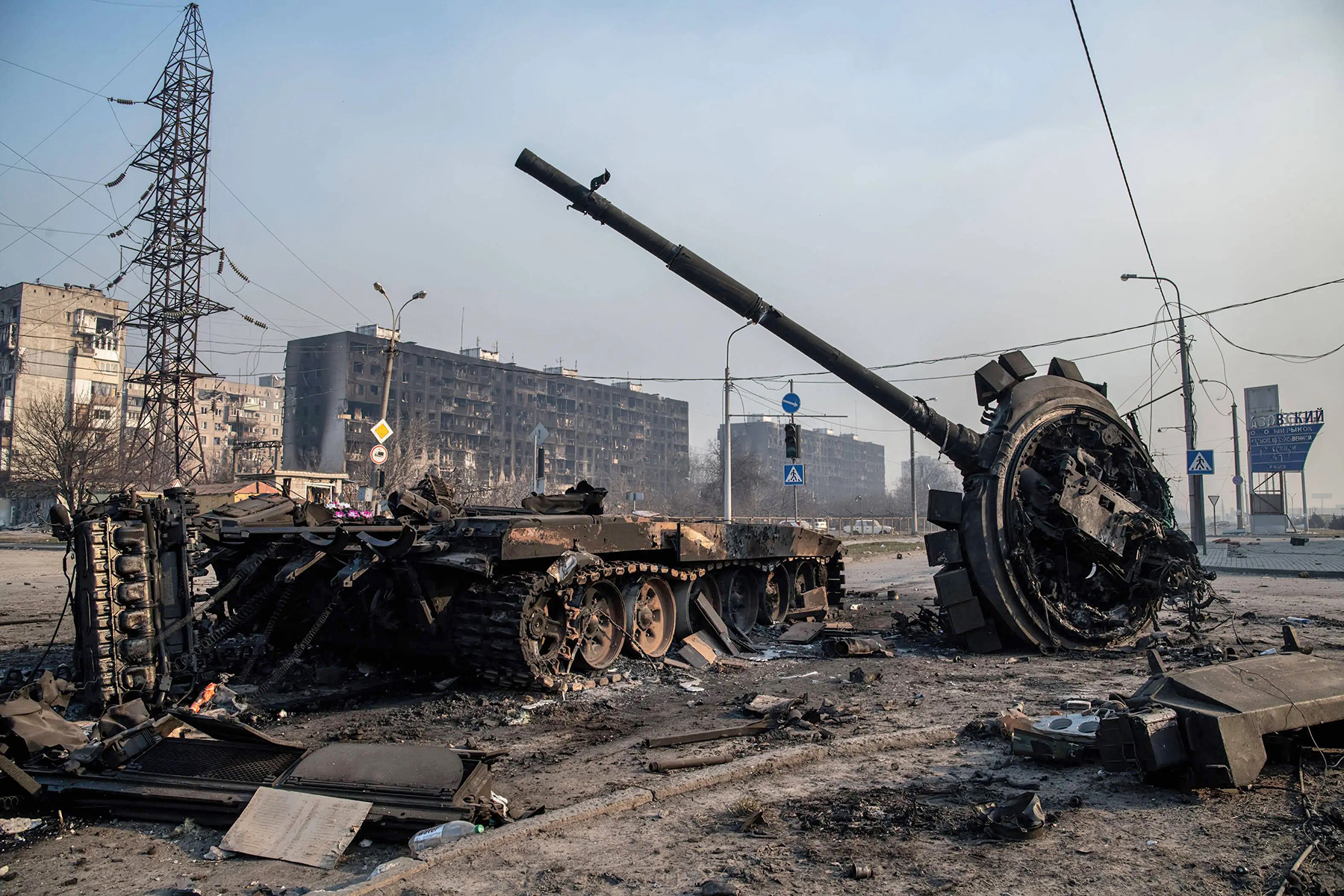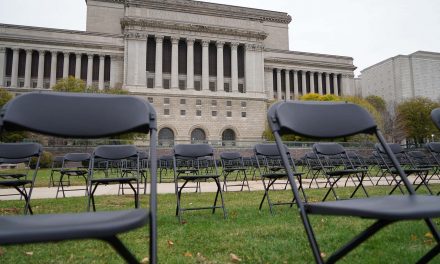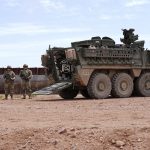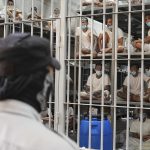
The military, economic, and diplomatic goals of Russian dictator Vladimir Putin stood in ruins after three months of war in Ukraine.
Russia’s retreat from Kharkiv in late May, Ukraine’s second-largest city, pushed Moscow’s forces back to their border 25 miles away and taken their artillery beyond the city’s range. Russia seemed to contract plans for a grand pincer movement around Ukrainian forces in the country’s east, partly because of a lack of manpower.
A particularly humiliating defeat occurred on May 11 when Ukrainian forces inflicted heavy losses on the Russian 74th Motorized Rifle Brigade, as it attempted to cross the Siverskyi Donets river as part of a weak strategy to encircle Ukrainian defenders in Rubizhne.
Satellite images showed splintered remains of a pontoon bridge with clusters of destroyed Russian vehicles on both banks of the river, where Russian forces were caught in transit. Of the 550 Russian troops sent into action, 485 were reportedly wounded or killed, and 80 pieces of equipment were destroyed.
Russian forces also failed to branch out from a bridgehead in Izyum and perform an encirclement.
Ukraine said Russia has lost almost 28,000 troops, or 20 percent of the force that launched Moscow’s so-called “special military operation,” and as much as 60 percent of the equipment involved in the invasion.
The Ukrainian general staff said some Russian units in the Donbas were at 20 percent of their strength and were being forced to team up with private military companies.
The head of Ukraine’s main intelligence directorate, Kyrylo Budanov, said Russia began a covert mobilization, which included reservists. The Ukrainian general staff said 2,500 Russian reservists had been training near the border between both countries.
After the twin failures at Izyum and Rubizhne, it was likely that Russian forces abandoned a broader encirclement plan in order to focus on Luhansk oblast, said Serhiy Haidai, head of the Luhansk Oblast administration.
The Washington-based Institute for the Study of War agreed: “It is unclear if Russian forces can encircle, let alone capture, Severodonetsk and Lysychansk even if they focus their efforts on that much-reduced objective. Russian offensives have bogged down every time they hit a built-up area throughout this war.”
Russia has also removed a number of top commanders from their posts for poor performance.
“Russia’s strategic defeat is already obvious to everyone in the world,” Ukrainian President Volodymyr Zelenskyy recently declared. “It’s just that Russia doesn’t have the courage to admit it yet … Therefore, our task is to fight until we achieve our goals in this war. Free our land, our people and establish our security.”
There also seems to be a looming shortage of military hardware. U.S. Commerce Secretary Gina Raimondo told Congress that Russia was using chips from refrigerators and dishwashers in its tanks because of a shortage of semiconductors. That information came from Ukrainian sources.
Although the two sides are negotiating to exchange prisoners, there can be no substantive peace talks, said Thanos Veremis, professor emeritus of history at Athens University.
“There was a point when they might have come to an agreement, but now the Russians have committed so many atrocities it’s very difficult. This is when the real Ukraine is being born – it’s building its national narrative and hammering its identity,” said Veremis.
The gas war
On May 11, Ukraine limited Russian gas transiting its territory to Europe for the first time, cutting the flow through one of two major pipelines by a quarter. Ukraine said it shut the pipeline entering its territory at Sokhranovka after Russian-backed separatists siphoned off gas.
Kremlin Spokesperson Dmitry Peskov said Russia was committed to honouring gas contracts to Europe, but on May 12, Russian gas monopoly Gazprom retaliated by forbidding European pipelines, in which it is a shareholder, to transport its gas.
“A ban on transactions and payments to entities under sanctions has been implemented,” Gazprom said in a statement. With Russian gas deliveries expected to fall further, European gas prices jumped 22 percent. The act was seen as part of “retaliatory special economic measures in connection with the unfriendly actions of some foreign states and international organizations.”
The diplomatic war
NATO enlargement, a reason put forward by Putin for his war against Kyiv, advanced specifically as a direct result of his invasion of Ukraine.
On May 12, Finland’s President Sauli Niinisto and Prime Minister Sanna Marin said in a joint statement that “Finland must apply for NATO membership without delay.”
Sweden followed Finland’s lead three days later.
“Sweden needs formal security guarantees that come with membership in NATO,” Prime Minister Magdalena Andersson told legislators in the capital Stockholm.
Russian Foreign Minister Sergey Lavrov lashed out at the United States, saying it was dragging Europe into an expensive confrontation with Russia.
“The EU will finally lose all attributes of independence and obediently join the Anglo-Saxon plans to assert the unipolar world order … in order to please the United States,” he said.
Putin was forced into a diplomatic withdrawal on the issue of Finland and Sweden joining NATO.
“As to enlargement, Russia has no problem with these states – none,” he said on May 16. “And so in this sense there is no immediate threat to Russia from an expansion of NATO to include these countries,” Putin told the leaders of the Collective Security Treaty Organization, a military alliance of former Soviet states.
Putin’s position marked a diplomatic retreat from that expressed by former Russian president and ally Dmitry Medvedev, who said in April that Russia would deploy nuclear weapons in Kaliningrad, across the Baltic Sea from Finland and Sweden, should they consider membership in the military alliance.
“A threat has value while you don’t have to make good on it,” said Constantinos Filis, who directs the Institute of Global Affairs at the American College of Greece. “Russia threatened Sweden and Finland with consequences if they entered NATO. Once they did so, it was humiliating to insist.”
Jоhn Psаrоpoulоs
Mаxіmіlіаn Clаrkе
Originally published as Russia suffers series of military, economic, diplomatic defeats













